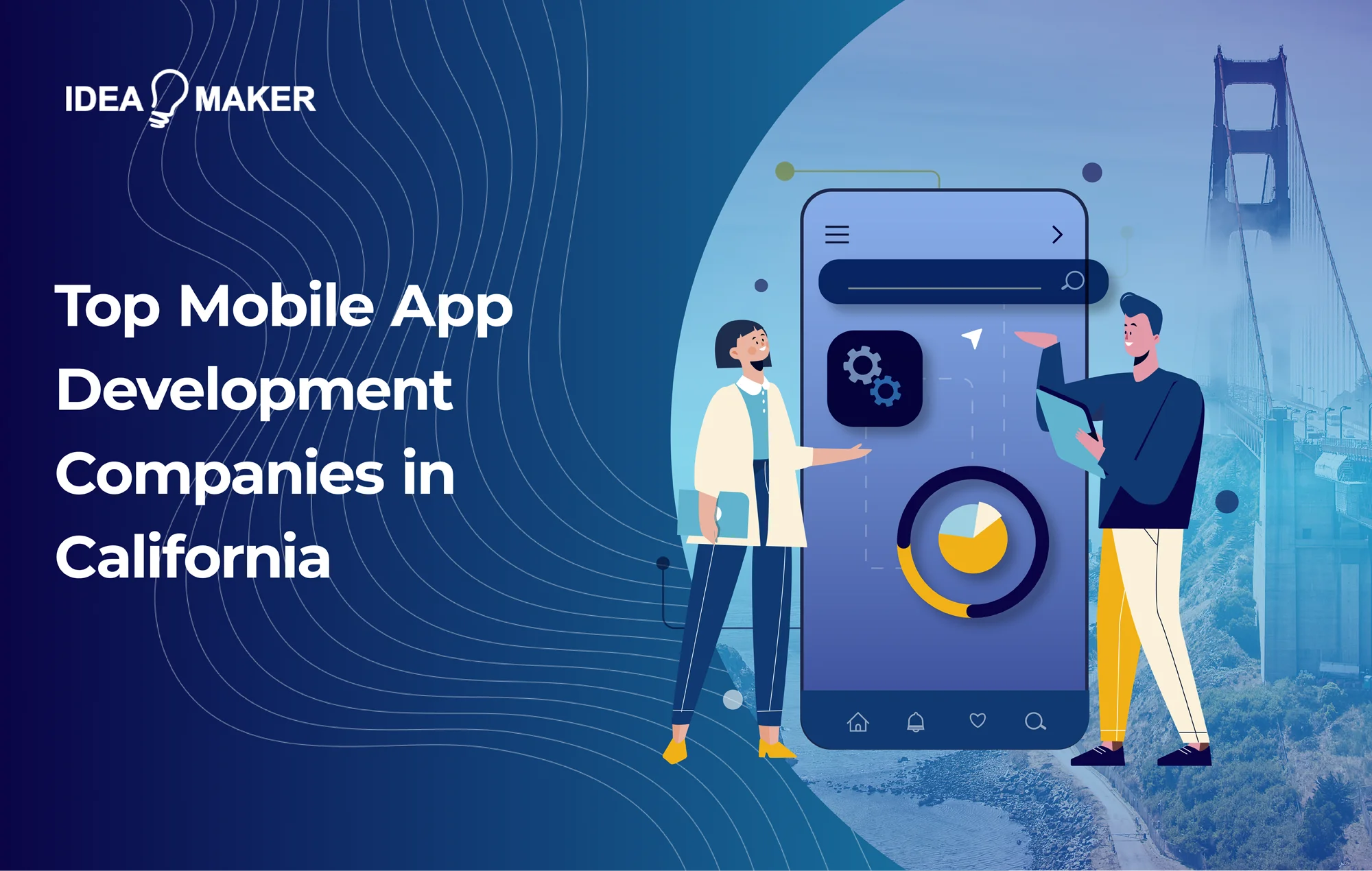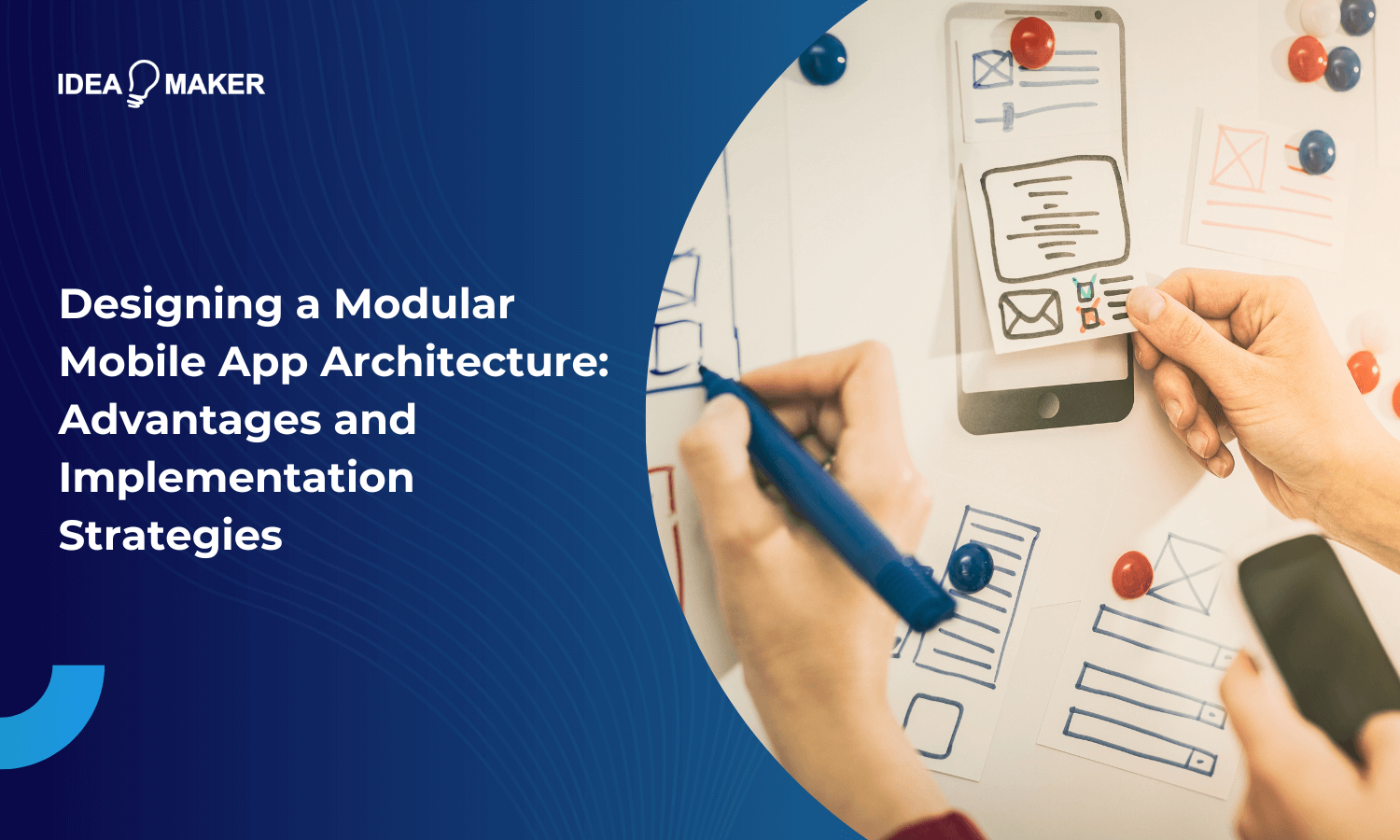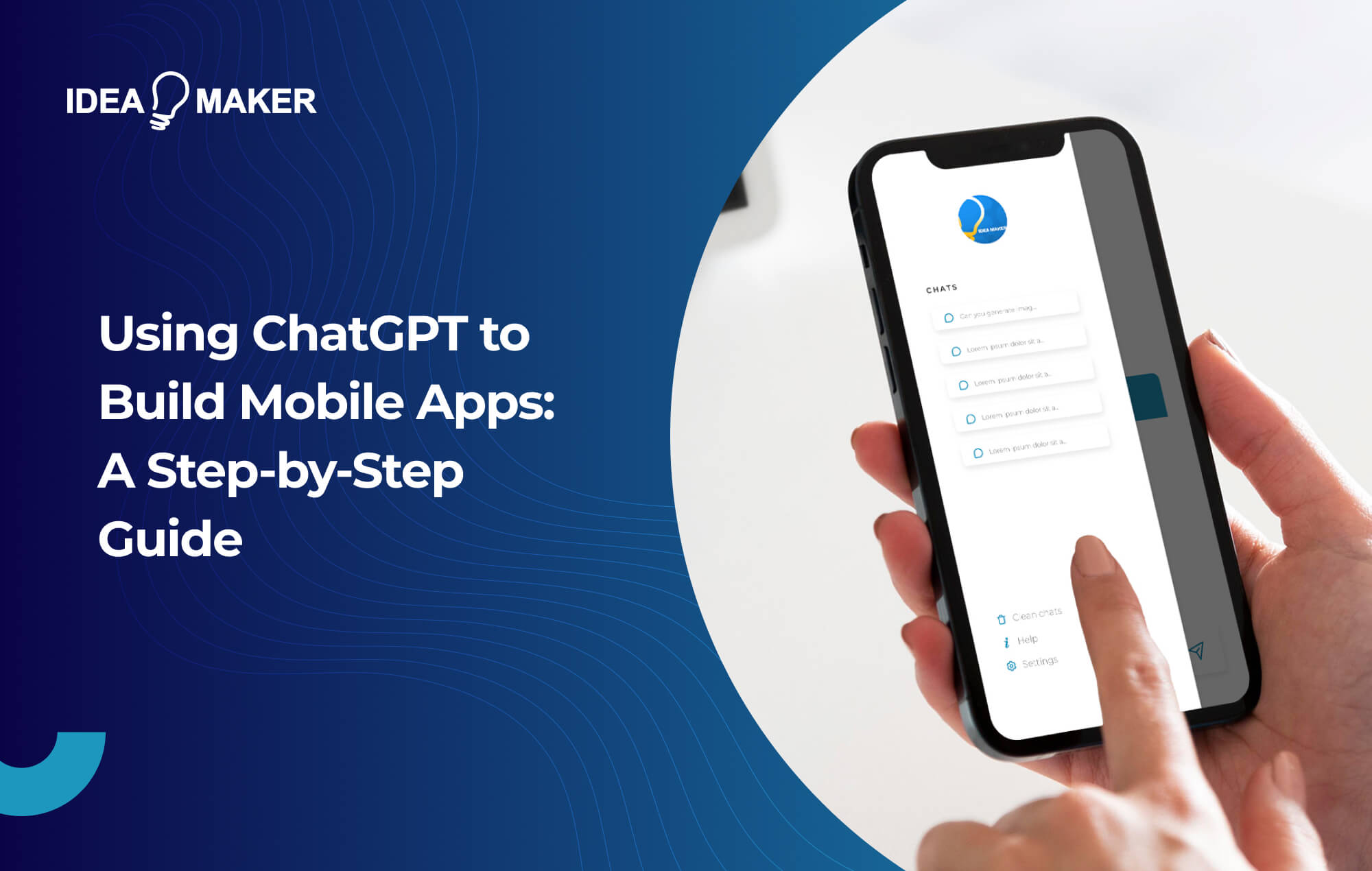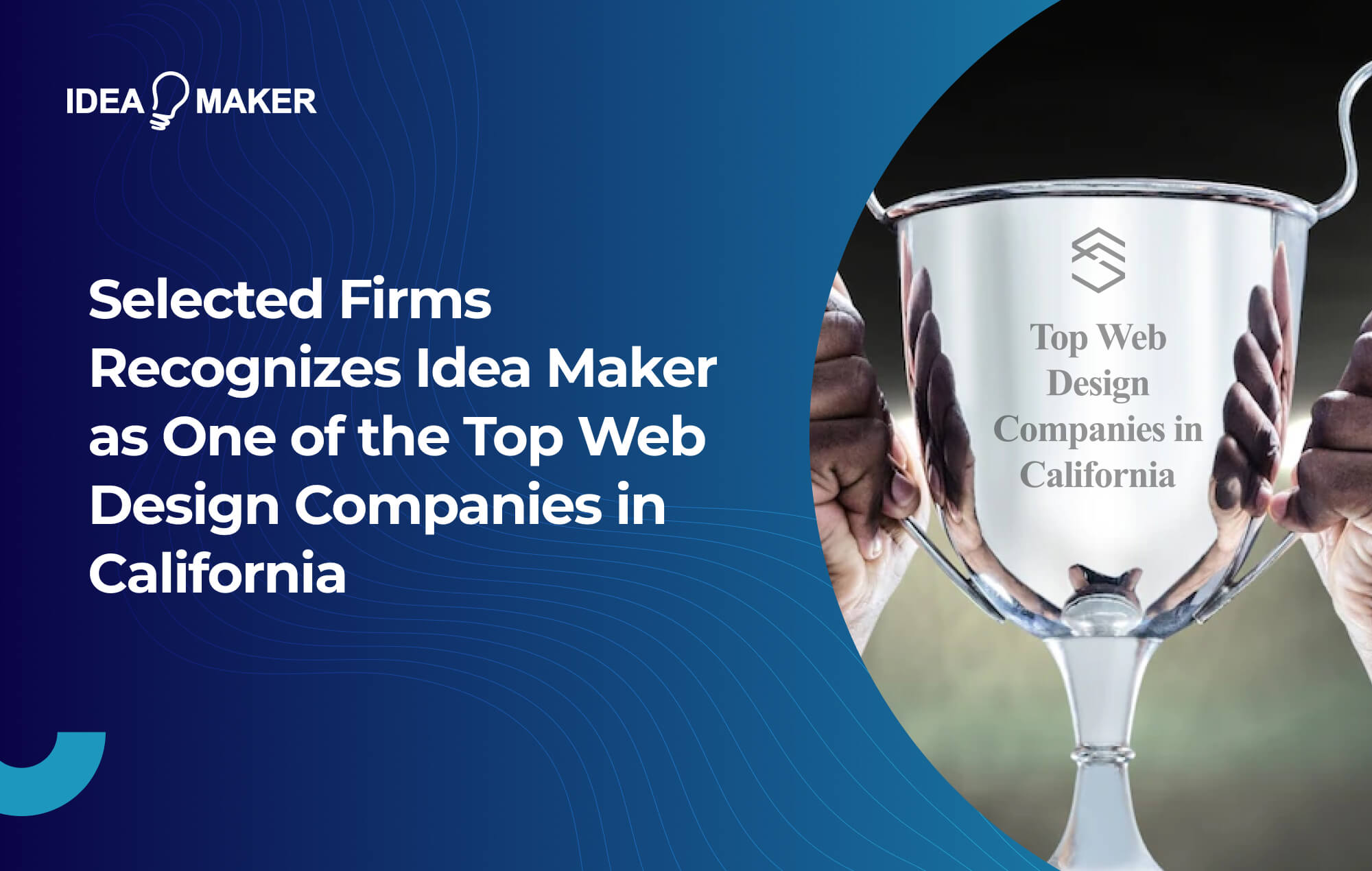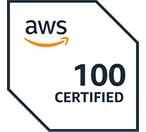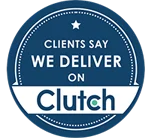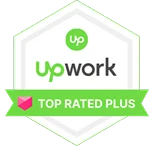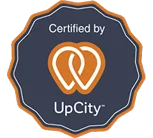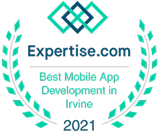You have a great mobile app idea, but turning it into reality feels harder than it should. Finding the right agency partner is overwhelming. That’s why we created this guide to the top mobile app development companies in California.
| Rank | Company | Location / HQ | Estimated Team Size | Platform / Technical Focus | Hourly Rate / Project Range* |
| 1 | Idea Maker | Orange County, CA | ~ 50–100 | iOS, Android, React Native, Flutter + cross-platform, AI integrations | $120–200 / hr (or $50 K–$300 K project) |
| 2 | TechAhead | Los Angeles, CA | 100+ | iOS, Android, React Native, Flutter | $100–180 / hr |
| 3 | Goji Labs | Los Angeles, CA | 40–80 | Mobile apps, UX, product-led dev | $80–150 / hr |
| 4 | Azumo | California (various) | 60–120 | Full stack + mobile, enterprise focus | $110–190 / hr |
| 5 | Mercury Development | California | 80–150 | Mobile + enterprise, scalable systems | $120–200 / hr |
| 6 | AppMakers USA | Los Angeles, CA | 30–70 | Custom mobile, cross-platform | $90–160 / hr |
| 7 | Purrweb | California (remote + CA presence) | 50–100 | Cross-platform & mobile apps | $70–140 / hr |
| 8 | Utility | Los Angeles, CA | 40–90 | Mobile apps, UI/UX, cross-platform | $80–160 / hr |
| 9 | Blupalms | California | 30–60 | Mobile + hybrid apps | $70–140 / hr |
| 10 | Differenz System | California | 50–120 | Scalable mobile, custom apps | $100–180 / hr |
Everyone claims to be “top-rated,” yet few can actually translate your vision into something scalable, fast, and user-friendly.
The truth is, hiring the right mobile app partner has little to do with how impressive their site looks. It’s about finding a team that understands your goals, your users, and your market.
That’s why we created this guide to the top mobile app development companies in California. We’ve analyzed the field, compared real results, and highlighted the agencies that have consistently delivered over time.
Let’s start:
Table of Contents
How Do We Select App Development Companies For Our List
Finding the right mobile app development company isn’t just about portfolios or promises. It’s about finding highly-vetted teams that consistently deliver scalable, launch-ready apps under real world scenarios. That’s why we built an evidence-based framework to help us find top app dev companies that actually perform:
- Inclusion Criteria
Every company featured on our list met a clear baseline: 3 or more years in business, at least 15 completed projects, and verifiable client references. We cross-checked credibility through trusted review platforms like Clutch, GoodFirms, and DesignRush to confirm their reputation is earned, not advertised. - Weighting of Evaluation Factors
Each company was scored using a structured model that reflects what truly matters in delivery:- Portfolio Quality (30%) — Depth, innovation, and relevance of past projects
- Client Reviews (25%) – Verified feedback emphasizing satisfaction, delivery, and outcomes
- Specialization & Niche Fit (20%) – Expertise in specific industries or technologies
- Technical Depth (15%) – Range and modernity of their stack (Flutter, React Native, Swift, Kotlin, etc.)
- Responsiveness & Communication (10%) – Professionalism during client outreach and engagement
- Data Sources
We collected information from agency directories, verified review platforms, founder interviews, and direct outreach to clients where available. This multi-source approach minimized bias and captured how agencies performed in live client environments. - Transparency and Verification
All insights were verified in Q3 2025. We update data regularly and maintain a strict no-pay-to-play policy. Sponsored placements, when they exist, are clearly disclosed so readers can trust that rankings remain merit-based and unbiased.
Idea Maker Agency – Orange County, CA
Idea Maker Agency has earned its place as one of the best mobile app development companies in California by doing one thing consistently well: turning ambitious ideas into mobile experiences that power business success.
Founded in 2016, we’ve grown into a tight, multidisciplinary team that understands how to move from brainstorming to scalable mobile app releases without losing sight of what makes your idea valuable in the real world.
We build across iOS, Android, and cross-platform ecosystems using React Native, Flutter, and Xamarin frameworks while balancing speed and flexibility. Our clients span fintech, healthcare, logistics, and e-commerce, and we approach every project with the same goal: create something functional, elegant, and ready to scale.
Strengths & Services
- UX/UI design focused on real user behavior and conversion performance
- Custom back-end systems built on AWS, Firebase, and Node-based APIs
- AI integrations, analytics, and automation for smarter, data-driven apps
- Cross-platform builds that cut time to market without cutting quality
From PlaneFax to HelloVacay, our work shows how design thinking meets disciplined engineering. Clients often tell us they value our transparency, speed, and willingness to think like product owners, not just developers.
With 250+ successful projects and a 4.9-star client rating, we’ve proven what great partnerships can achieve. If you’re ready to build something that performs, scales, and lasts, Idea Maker is ready to make it happen.
TechAhead – Los Angeles, CA
TechAhead has built its reputation on design-led engineering, blending elegant UX with enterprise-grade performance. Founded in 2009, the company has delivered more than 2,000 mobile apps across industries including fintech, healthcare, and logistics, earning recognition for its ability to merge creativity with technical depth.
Rather than following rigid templates, TechAhead focuses on creating human-centered digital experiences that balance usability with scale. Their developers work across Flutter, React Native, Kotlin, and Swift, supported by secure backend integrations through AWS and Firebase.
Notable collaborations with AXA, Disney, and American Express demonstrate their capacity to handle complex, high-stakes projects that demand reliability and polish.
Ideal For: Medium to large enterprises and funded startups seeking design-first, high performance apps backed by enterprise-grade architecture and long-term support.
Goji Labs – Los Angeles, CA
Goji Labs is a Los Angeles–based product development firm that blends product strategy, UX design, and technical execution into a cohesive development process.
Founded in 2014, they’ve earned recognition for their ability to turn complex ideas into market-ready apps with a strong emphasis on usability, iteration, and long-term scalability.
Their work spans fintech, healthcare, education, and social impact, often partnering with mission-driven startups. Projects like PredictionStrike, a stock market for athletes, and Kabata, an AI-powered fitness platform, reflect their talent for merging functionality with vision.
Ideal for: Early-stage to growth startups that want more than just a development vendor. Teams that need a partner capable of guiding product strategy, UX-first builds, and scalable development from MVP to full version.
Azumo – California
Azumo is a nearshore software development company that connects U.S. businesses with elite Latin American engineering talent. Founded in 2016, they specialize in mobile app development, AI integration, and cloud-based solutions, allowing companies to scale rapidly without sacrificing communication or quality.
Their process emphasizes deep discovery, iterative design, and technical precision. The agency is known for combining native and cross-platform builds using React Native, Flutter, Kotlin, and Swift. Azumo’s case studies include partnerships with brands like Zyngaand Franklin Park, showcasing their ability to deliver complex, performance-heavy applications for data-driven and gaming environments.
Ideal For: Growing startups and enterprises seeking cost-efficient, high-skill nearshore teams capable of handling end-to-end mobile development or augmenting internal teams with AI-ready engineering expertise.
Mercury Development – California
Mercury Development has been in operation since 1999, carving out a reputation as a full-spectrum software shop that supports iOS, Android, Windows, macOS, and web apps. Their strength lies in their end-to-end approach, from ideation through development and QA to maintenance and scaling.
One of their highlighted works involves expanding a home entertainment platform’s app for Apple TV and mobile devices, enabling new features and improved performance across device types. On Android specifically, they claim experience with 200+ apps and over 40 million active users, pointing to substantial scale and user-base management challenges handled.
Ideal For: Mid-sized and enterprise-level organizations that value a partner capable of handling full lifecycles across multiple platforms. Mercury suits projects with long horizons, requiring support across desktop, mobile, and embedded systems, rather than just fast MVP turnaround.
AppMakers USA – Los Angeles, CA
AppMakersUSA (trading as AppMakersLA) defines itself as a full-stack mobile app studio that blends local presence, agile delivery, and hands-on collaboration. They highlight their Los Angeles roots by offering in-person project management in tandem with cross-platform engineering.
Their team of roughly 30 app specialists works across iOS, Android, and hybrid builds, using frameworks like React Native and Flutter to deliver scalable, maintainable apps. Their portfolio boasts over 120 apps launched and 15 million users connected across their clients’ platforms.
On verified review platforms, AppMakersUSA is praised for deliveries on time and within budget, clear communication, and strong alignment to client goals.
Ideal for: Startups and midmarket teams that value a local LA presence combined with agile, cross-platform development and predictable cost structures.
Purrweb – California
Purrweb positions itself as a lean, high-velocity product studio operating at the intersection of rapid MVP launches and long-term scalability. Their process starts with a mini-audit and immersion phase, enabling quick understanding of a client’s domain before development begins.
With experience across 46+ industries including fintech, IoT, medtech, and marketplaces, they reuse proven design and code patterns to accelerate delivery. Using React Native and Flutter, they claim up to 30% faster turnaround and lower costs than native builds.
Their portfolio includes EnerGO (1M+ users), Broex (multi-currency crypto wallet), and WAW (130K users in six months). The Look4pro MVP shows their ability to build under tight budgets while maintaining quality.
Ideal For: Startups and early-stage ventures looking to validate ideas quickly with a design-driven MVP partner that can evolve prototypes into complete, production-ready apps.
Utility – Los Angeles, CA
Utility Agency operates at the junction of product strategy, design, and engineering, positioning mobile apps as extensions of core brand experience rather than standalone deliverables. Their mantra is building “elegant, future-proof mobile experiences,” with a mobile app practice that spans native iOS, Android, React Native, tablets, and wearables.
Over its 12+ year journey, Utility has delivered more than 150 projects, working with startups through Fortune 500 companies. Their portfolio features case studies across multiple industries with projects like NBA Homebase, SirenMD (telemedicine), and TapStats (sports analytics) highlighting their capability in complex, performance-rich applications.
Clients rate Utility highly on strategic thinking, communication, and delivery. Their Clutch profile shows an average score of 4.8/5, with clients pointing to strong project management and flexibility.
Ideal For: Teams that want a partner who can lead both product vision and execution, especially projects that require deep thinking, scalable architecture, and continuous iteration beyond launch.
Blupalms – California
Blupalms is a nimble, design-forward studio that handles full-cycle mobile and web product development. Their process is structured: beginning with discovery and strategy, flowing through UI/UX design, then development and QA, all while keeping business goals tightly integrated.
They showcase apps like Griddy (a fantasy football drafting app) and Avrora Sleep Sounds & Stories (a wellness app). These projects reflect their ability to tackle consumer-facing, engagement-heavy products with polish and usability.
On platforms like Clutch, Blupalms describes itself as a small-scale studio whose size is strength. Each project receives focused attention, direct communication, and design-driven execution.
Ideal For: Early-stage ventures or product teams seeking a studio that can deliver lean, user-centric MVPs and consumer apps with strong design sensibility and hands-on collaboration.
Differenz System – California
Differenz System is a full-cycle development company that blends engineering depth with product thinking. With offices in Los Angeles and Surat, they specialize in building high-performance mobile apps for iOS, Android, and cross-platform environments using Flutter, React Native, Swift, and Kotlin.
A key strength of Differenz System lies in integrating AI, IoT, and data analytics into mobile ecosystems. Their portfolio spans healthtech, logistics, fintech, and education with projects like Grow Curriculum and HubFleet. With 150+ engineers and over a decade of experience, they position themselves as a hybrid team capable of handling both enterprise and startup builds.
Ideal For: Companies seeking technically strong, feature-rich mobile apps that balance scalability, security, and long-term product evolution.
How to Choose the Right Mobile App Development Partner in California
Stage 1 – Define Your Business and Technical Requirements
Every successful mobile app development project starts with clarity. Before contacting agencies, define what you’re actually building and what success looks like.
Is it a lightweight MVP to test an idea, a scalable B2C product meant to handle thousands of users, or a complex enterprise platform designed for internal efficiency?
At this stage, map out key parameters:
- Platform priorities: iOS, Android, or cross-platform builds
- Core capabilities: Real-time features, API integrations, AI or automation components
- Timeline and budget: Realistic estimates for both
- Internal resources: Whether you need a full-service partner or team extension
Skipping this groundwork leads to vague proposals and inflated estimates. The agencies worth hiring respond best to clarity and focus, not broad wish lists.
Stage 2 – Shortlist Agencies Based on Domain Fit and Reputation
Once you’ve defined your requirements, the next step is narrowing the field to agencies that actually understand your space.
Start by exploring trusted directories like Clutch, GoodFirms, and DesignRush to find California-based firms with verified client reviews. Combine that with referrals from peers, mentors, or investors who’ve worked with developers firsthand.
When assessing potential partners, focus on:
- Domain relevance: Have they built apps in your industry or with similar features?
- Company size:
- Boutique teams excel at MVPs and early-stage builds
- Mid-size firms suit scaling startups
- Full-service agencies handle complex, enterprise-grade projects
Remember, niche experience matters more than flashy portfolios. A team that understands fintech security or healthcare compliance will almost always outperform a generalist.
Stage 3 – Deep-Dive Discovery and Technical Interviews
This is where the real vetting process begins. Once you’ve narrowed your list, schedule discovery calls with 2 to 5 agencies and invite both your product and technical leads.
These conversations reveal far more than a proposal ever will, because they show how a team thinks, collaborates, and solves problems.
During these sessions, dig into:
- Team structure: Who owns design, development, and QA?
- Workflow clarity: How do they move from prototype to production?
- Technical insight: Ask how they’d architect your app, even at a conceptual level.
- Evidence: Review live products, not just decks or mockups.
Great agencies don’t agree with everything you say. They’ll push back, refine your ideas, and add structure to your vision. That’s the kind of partnership worth paying for.
Stage 4 – Validate Fit Through Proposals and Pilot Projects
At this stage, you’re testing how well an agency delivers before committing to the full build. Request detailed proposals outlining scope, milestones, pricing models, and team composition.
Pay close attention to how they explain trade-offs. A strong partner will highlight risks and contingencies, not just deliverables.
At this point, most businesses also request:
- Pilot sprint or proof of concept (POC) to gauge collaboration and delivery speed
- Transparent pricing tied to measurable milestones
- Legal documentation covering IP rights, SLAs, NDAs, and compliance terms
The pilot phase often exposes what no presentation can; how an agency actually works under pressure. The best ones stay clear, flexible, and responsive when the plan meets reality.
Stage 5 – Assess Post-Launch Commitment
Your relationship shouldn’t end the day your mobile app goes live. The best agencies think beyond launch day and plan for what comes next, including maintenance, updates, and scaling.
Before finalizing your choice, evaluate their post-launch strategy and how they handle ongoing improvement.
Focus on three key areas:
- Maintenance and updates: How frequently do they push fixes or version upgrades?
- Support models: Do they provide monitoring, crash analytics, and OS compatibility checks?
- Long-term collaboration: Are they open to joining future feature sprints or analytics-driven optimizations?
A strong post-launch partner stays invested in your growth. Don’t just hire developers who build apps; look for a technical ally who evolves your product as your business scales.
Mobile App Development Trends in California (2025 – 26 Outlook)
AI and Large Language Model (LLM) Integration Becomes Standard
By 2025, LLMs will be embedded in most new apps rather than added as features. It’s estimated there will be 750 million LLM-powered apps globally by the end of this year. (Hostinger) Mobile app developers in California are now increasingly integrating features like generative chat, summarization, and context-aware prompts as core mechanics rather than optional extras.
Cross-Platform Development Dominates New Builds
Cross-platform frameworks now power over 42% of mobile apps, a share that’s steadily rising. (Statista) In 2025, Californian mobile app dev teams increasingly favor React Native, Flutter, and Kotlin Multiplatform to reuse 70–85% of their codebase across iOS and Android. This approach slashes costs, aligns feature updates, and speeds up time-to-market, making cross-platform the default for startups and scaleups rather than a compromise.
Cloud-Native, Serverless, and Edge Architectures Go Mainstream
In 2025, nearly 93% of backend developers are using cloud in some capacity, with almost half of them identifying as “cloud-native” practitioners. (CNCF) This shows that serverless, microservices, and edge computing are no longer niche but core architecture choices for major mobile app developers. Teams are adopting event-driven backends, edge functions for latency-sensitive features, and microservices that scale independently. These patterns allow apps to adapt to usage spikes, integrate AI inference near the user, and deliver real-time performance without overloading monolithic infrastructure.
Data Privacy and Compliance Is a Strategic Priority
Trust is nonnegotiable in 2025. According to recent research, 83% of consumers worry about how companies handle their personal data. (StationX) In California, where data regulations like CCPA / CPRA are strictly enforced, compliance isn’t optional but a market differentiator. Mobile app developers must embed permission management, consent logging, data minimization, and on-device encryption from day one. The best development partners treat compliance as a feature with auditability, user rights workflows, and logging baked into the architecture.
Industry-Specific Use Cases Are Driving Custom Innovation
California’s app ecosystem is moving away from one-size-fits-all builds. By 2026, the custom software market is expected to exceed $146 billion globally (Grand View Research). Healthcare apps now focus on HIPAA-compliant telehealth, logistics apps optimize routing via AI, and fintech products emphasize embedded compliance and real-time analytics. The biggest opportunities lie in vertical depth by building smarter, regulation-aware solutions customized to each industry’s pain points.
No-code/Low-code Platforms Are Now Used to Rapidly Prototype Features or Admin Portals
Gartner predicts that nearly 70% of new enterprise apps will leverage low-code or no-code tools, even in tech-forward markets. (Gartner) In California mobile app ecosystems, product teams increasingly adopt low-code platforms to spin up internal dashboards, admin panels, and feature prototypes within days, not weeks. These platforms let non-engineers sketch flows visually, integrate APIs, and validate ideas with minimal overhead. The result: you can test features, gather feedback, and decide what’s worth building in native while avoiding overinvestment on unproven ideas.
How Idea Maker Supports Scalable Mobile App Development in California
There’s a difference between an app that exists and an app that dominates. At Idea Maker, we act as your co-founders in code with a team as invested in your success as you are. Our developers are obsessed with user retention, performance, and delivering measurable ROI from day one.
With proven expertise across iOS, Android, and cross-platform frameworks, we create mobile applications ready for growth, fluid integration, and securing your place as the market leader. For founders who refuse to settle, Idea Maker is the partner you’ve been searching for.
Here’s what sets us apart:
- Full-stack expertise: iOS, Android, and cross-platform development using React Native, Flutter, and native frameworks.
- Architecture built for scale: Modular backends, API-first design, and cloud infrastructure that grows with user demand.
- AI-ready solutions: Integrations for chatbots, analytics, and automation to future-proof your product.
- Proven track record: 250+ successful projects and a 4.9-star client rating across global platforms.
If you’re seeking a top mobile app company in California who builds mobile solutions designed to last, you’ve come to the right place. Schedule a free consultation call with an Idea Maker expert today!
FAQ: California Mobile App Development Companies
What is the average cost of hiring a mobile app development company in California?
The average cost ranges from $30,000 to $250,000 depending on complexity, features, and tech stack. MVPs or small-scale apps may start around $20,000, while enterprise-grade or AI-powered builds can exceed $300,000. California’s higher labor costs reflect the region’s premium for top-tier engineering talent.
How long does it take to build a custom mobile app?
Timelines vary by scope. A simple MVP typically takes 3 to 5 months, while feature-rich or multi-platform apps often require 6 to 12 months. Enterprise builds with advanced integrations or AI components can extend up to 18 months, including testing, optimization, and deployment cycles.
Should I work with a local or remote agency in California?
A local agency offers better collaboration, timezone alignment, and in-person strategy sessions. However, remote or hybrid teams can reduce costs by 20 to 40% while maintaining quality. The best choice depends on your communication style, budget, and project complexity rather than location alone.
What’s the difference between a full-service agency and a boutique mobile firm?
A full-service agency handles everything from strategy to design, development, testing, and maintenance, making it ideal for complex or enterprise projects. A boutique firm focuses on fewer clients, offering hands-on involvement and speed. Both have their own merits; full-service agencies scale better, while boutiques deliver more personal attention.
Are California app development companies compliant with data privacy laws like CCPA?
Yes. Most reputable California app agencies design with CCPA and GDPR compliance baked into architecture. They implement consent management, encryption, and data anonymization to protect user privacy. Always verify a partner’s compliance policies, data storage practices, and audit history before signing a deal.
Final Thoughts on Choosing a Mobile App Development Company in California
Choosing the top mobile app development company in California isn’t just about skill but finding a partner who understands your market, your users, and your long-term goals. The state’s tech ecosystem is thriving with talent, but only a select few combine creativity, engineering strength, and business acumen.
Whether you’re building your first MVP or scaling a complex enterprise platform, the right partner will define your success. Idea Maker brings that balance of strategy and execution, helping California businesses launch mobile apps that perform, scale, and lead. Start your next project with a team built for growth!
